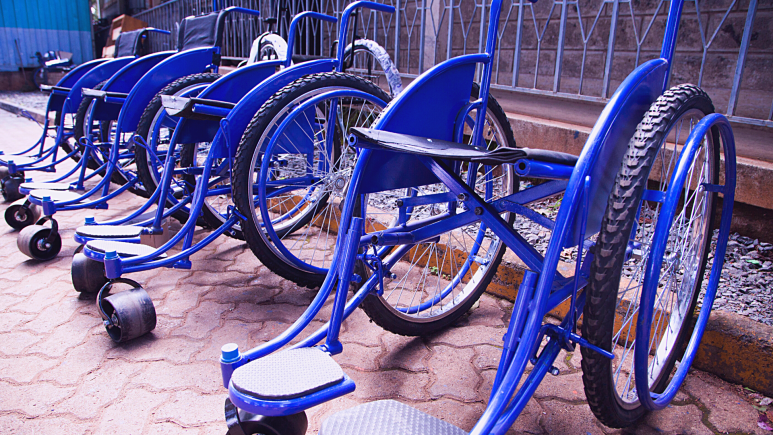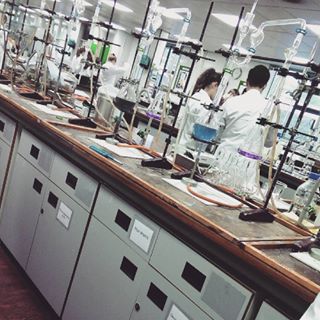
People are often surprised to learn that nutrition is not a pseudoscience about eating your greens, but is in fact the study of the complex biochemical interactions between nutrients and the human body and how that influences our health. This misunderstanding is only partly explained by the overuse of the term “nutritionist”, which encompasses everything from someone with a 2-day course from a dodgy website to someone with a PhD and lifetime of experience in nutrition. When I persuade someone to be honest with me about this confusion, they admit that despite the work of all feminists, a typical scientist is still pictured as a man in their minds. Since nutrition is regarded as a woman’s subject, it is therefore not deemed a true science. What is more, once people are aware of the scientific basis of the subject, they remain confused as to how a disabled person like myself could possibly use a laboratory. This is in spite of the fact that one of the most prominent scientists of this day and age was also one of the most disabled people on the globe. It baffles me that after all the publicity surrounding Stephen Hawkins, they made a movie of his life story for crying out loud, people still assume that disability means I can’t do science.
Using a wheelchair in a laboratory is not without its challenges. Trying to drive what is essentially an over-sized go-kart down a narrow passage lined on both sides with precision engineering glassware worth several thousand pounds is an expensive disaster waiting to happen. Similarly, the height of the workbenches would warrant the use of a periscope, and some students are still not entirely used to the soft whine of motors followed by a gliding ponytail, the only thing visible above the benches that signals my arrival. Still, once perched on a lab stool with my wheelchair pushed to one side, these issues are overcome, and since I am unable to walk any substantial distance, I manage to wheedle my way out of doing the washing up too.

Like any normal student I enjoy the chance to have fun, so when my colleagues were using automatic pipettes to determine just how far an ejected pipette tip could be thrown, I did not fail to join in. However, being an abnormal student also gives rise to much hilarity. When using an atomic absorption spectrometer to measure the iron and calcium content of a cake, we were warned of the dangers of using this piece of machinery, in particular the canister of explosive gas that was used to fuel it.
“If the flame suddenly expands, run,” our lab technician told us. “If it disappears for no reason, run. If the tube running from the canister to the spectrometer catches fire, run…”
I raised my hand; “What if you can’t run?”
The colour drained from the lab technician’s face. Thinking he had offended me, he struggled to find a suitable reply. After leaving a short pause for dramatic effect, I broke into a wide grin, and with relief the technician realised he hadn’t offended me at all, and I was simply and perhaps cruelly making fun of his chosen words.
Similar incidents are not limited to the laboratory alone, for when answering three questions correctly in quick succession during a seminar, my lecturer stated, “You’re on a roll.”
I didn’t even say a word before my lecturer realised his error, turning the colour of beetroot and spluttering an apology before I began to laugh, accompanied by the rest of the packed lecture theatre.
There is no reason why my particular disability should limit my prospects in the field of nutrition. Some people feel that they are too disabled to conduct intricate experiments in a laboratory, and would perhaps feel uncomfortable attempting to do so, but for those who wish to explore science, I hope that you are not limited by the ignorance of others. While there is something to be said for realism, I can’t help wondering how many great scientific discoveries have been missed because people were told that they were incapable because of their disability, gender, race, or sexuality.

Thanks Minnie. I found that informative. Sylvia
LikeLiked by 1 person